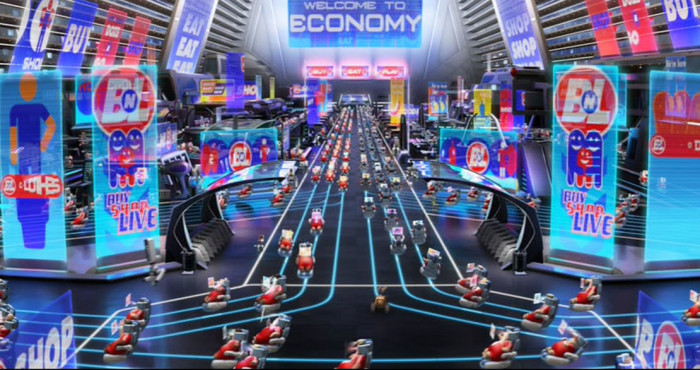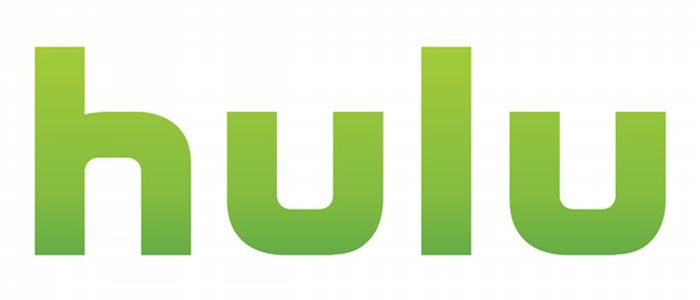Why Disney Fans Should Be Concerned About The Fox Deal
(Welcome to The Disney Discourse, a recurring feature where Josh Spiegel discusses the latest in Disney news. He goes deep on everything from the animated classics to the theme parks to live-action franchises. In this edition: why Disney fans should be very concerned about the upcoming deal to buy 20th Century Fox.)
Let's get this right out of the way: yes, this is going to be a Debbie Downer essay. By now, it's been a few days since the Walt Disney Company confirmed the rumors: they are aiming to buy 21st Century Fox, meaning that everything from Avatar to Die Hard to the X-Men to Hulu, FX, and National Geographic is going to be under the House of Mouse, should the deal be finalized and approved by all necessary parties. (It should go without saying, but that hasn't happened yet, and may not happen for a little while.) Some folks, of course, are rejoicing at this news, tantalized by the thought that Charles Xavier and his mutant friends might make a pit stop in an Avengers movie somewhere down the road, to just name one example. There are, no doubt, financial upsides for both Disney and Fox in making this deal, but from my point of view, it's hard to see a lot of good in this story.
Pushing the Press Around
In early November, the Los Angeles Times made waves online when it revealed that its entertainment journalists had been barred from attending press screenings of the latest Marvel movie, Thor; Ragnarok, as well as from watching advance screeners of TV shows distributed by networks like ABC. Why did Disney bar writers from these events? Because it didn't like the journalism on display in this two-part story about Disneyland's battle with the Anaheim City Council over the past year. The two-part feature by Daniel Miller is excellent reporting, all the more so because it riled Disney so much (and don't forget: for all of the criticism that Disney levied at Miller's articles, they never specified what exactly they disliked about the story). Ironically, until Disney's upper management threw this tantrum, the story didn't get quite as much attention from readers around the world, let alone those in Southern California. In short, Disney got a fast lesson in the Streisand Effect.
I wrote about this story right before Disney announced that it would reverse this ban against the Los Angeles Times. While the outcome was indeed encouraging, it only came about because journalists and organizations around the country stood in solidarity against the Walt Disney Company. That the ban no longer exists is a good thing. That it ever existed is, however, very troubling. I bring this story up in context with the possible Disney/Fox merger because the bullying tactics against the press are not automatically likely to go away if the Walt Disney Company becomes even larger, even more massive, and even more powerful.
It is, of course, possible that Disney purchasing 21st Century Fox and its various assets, from its film studios to its stake in the Hulu streaming service and beyond, won't compel the company to further push back against stories it doesn't like, writers who they feel pose a threat to their interests, and so on. But it's important to remember: while we may enjoy the films and TV shows and theme parks that feature the Disney name (and I clearly do), that doesn't mean that the company at large is anyone's friend. If anything, the way the company acted in light of the Times story makes them seem like...well...
Becoming the Bad Guy?
This, in effect, is the second issue at hand with Disney's merger with Fox. Disney is, of course, no stranger to purchasing other studios and properties. In 2006, they bought Pixar Animation Studios and brought John Lasseter and Ed Catmull into the fold at Disney Animation as well. (Recent stories about Mr. Lasseter suggest that was a great deal more unwise than it may have initially seemed to outsiders.) A couple years later, Disney bought Marvel, and then they bought Lucasfilm. These three studios make up a large amount of what Disney movies are on a yearly basis now, with Star Wars and the Marvel Cinematic Universe having become the company's financial backbone. But while the films from these studios often depict a struggle between underdogs and a monolithic bad guy, the former triumphing over the latter in a victory for the little guys, Disney buying Fox only makes them seem more like the Goliath to someone else's David.
A couple years after Disney bought Pixar, the animation studio released one of its best films, WALL-E. That film doesn't spend a ton of time on describing how the remaining vestiges of the human race became so fat that they couldn't walk around on their own two feet. We just see plenty of happy, wildly unhealthy humans rolling around on floating recliners on an outer-space cruise ship as they enjoy the spoils of what appears to be the only corporation left in humanity: Buy-n-Large. The few shots we see of abandoned BNL stores call to mind the Super Targets or Wal-Marts that appear in various metropolitan markets around the country. But BNL's influence extends beyond the superstores of the 21st century; the last footage we see of a live-action president (played by Fred Willard) suggests that he was part of the BNL corporation as well as being a politician. By the time that WALL-E finds himself on the cruise ship Axiom, there's no separation between BNL (referred to in a nursery overseen by robots as "your very best friend") and any of the services offered on the ship or even the clothes the humans wear.
Disney is not at the level of BNL...yet. One of the side stories of Disney buying Fox is that its current CEO Robert Iger will extend his term at the top of the company through 2021, meaning that those pervasive rumors earlier this year about him running for President in 2020 are now moot. But it's hard not to see some parallels between the rise of Disney over the last decade-plus (there was once a time when they didn't even own Pixar, let alone Lucasfilm, Marvel, or Fox) and a massive conglomerate like BNL. Disney does not have superstores like the BNLs of the real world, but its products are everywhere to a point of maddening ubiquity. It's not like Disney buying Fox would be the first time they've expanded their growth, but this time, it suggests something more disquieting and engulfing.
The TV/Hulu Question
Part of what is so concerning about Disney buying Fox is that, if the deal is approved, they'll account for so much of the movie industry. The two studios alone account for 40 percent of this year's hits at the box office, and represent two of the six major studios within Hollywood, leaving Warner Bros., Paramount, Sony, and Universal. Disney's biggest competition in this market is probably Universal, itself becoming a monolithic empire over time; both companies are defined by film franchises, TV networks, animated characters, and worldwide theme parks. Should this deal be approved, Disney will also own a majority share in the Hulu streaming service, as Fox currently has a 30% share on its own. Some people might see that as a good thing — I've written before about how much I hope the upcoming Disney streaming service succeeds both for the average family and the Disney die-hard fan. And hey, Hulu's a pretty decent streaming service, so why not try to capitalize on that new acquisition?
While Hulu is a decent streaming service, if Disney gets a majority stake, what will be the future of its original shows or other networks' shows that you can stream right now? Moreover, what will become of the shows airing on the Fox network? Think, for example, of a fairly long-running Fox sitcom: Brooklyn Nine-Nine, the very funny police/workplace comedy starring Andy Samberg and Andre Braugher. That show is in its fifth season and is reaching the 100-episode plateau this year. Though it airs on Fox, the show is produced by NBC Universal. (It's not the only network show to air on one network and be owned by another studio.) What happens to Brooklyn Nine-Nine after Disney's deal to buy Fox is finalized? The Fox network, in some form, will remain with Rupert Murdoch, but the presumption is that the network will change to focus squarely on news, sports, and reality programming. This is just one example of a larger problem with a potentially very depressing solution. Disney bigwigs may have an answer ready by now, but then, they've also said that they expect to cut $2 billion worth of jobs should the deal go through, so...maybe the answer won't be that encouraging.
From “Disney’s Folly” to Disney’s Dominance
80 years ago, nearly eighty years ago today, Walt Disney's fledgling animation studio released its biggest gamble to date: the feature-length animated film Snow White and the Seven Dwarfs. We all know that Snow White was a massive success with critics and audiences alike from the get-go, proving his doubters wrong. But although the first animated feature was a hit in every sense, it wasn't true for a lot of the films that Disney would make over the next 15 years. Pinocchio, Fantasia, Bambi, and some of the 40s-era package films like Make Mine Music and Fun and Fancy Free were either big, expensive flops or cheaply made so that whatever box-office grosses they brought in weren't enough to be terribly profitable. Until the 1950s, and films like Cinderella and Peter Pan hit it fairly well with audiences, Disney was a bigger dreamer than a consistent financial success at the theater.
It is hard to reconcile the Walt Disney Company of the early days with the one that exists now. Even when Disney unveiled Disneyland Park to the world in the summer of 1955, it was seen as a high-priced gamble, one whose flaws were broadcast on national television on its opening day. Disney passed away five years before Walt Disney World opened in 1971; before his passing, he was pitching the 43 square miles of Orlando land he'd purchased as a way to create a utopian community that would also house one theme park to satisfy investors. That dream never came true (and might well have pushed the company even closer to BNL than it's at now), but it continued to position the studio as an underdog that aimed high, as opposed to a Goliath-like force that dominated everything its shadow touched.
In 1984, the Walt Disney Company was nearly the victim of a hostile takeover by an outside holding group. If there is a turning-point event in the history of the House of Mouse, it's this failed takeover, because that led Roy E. Disney, the nephew of Walt Disney, to bring Michael Eisner and Jeffrey Katzenberg into the company to lead its live-action and animation divisions. From there, Disney expanded its filmmaking to include Touchstone and Hollywood Pictures, the Renaissance of Disney animation began with classics like The Little Mermaid and Beauty and the Beast, and they even began to work with outside animation studios to make computer-animated features. If Disney purchasing Fox is the last domino to fall, the studio nearly being taken over was the first. Disney buying Fox isn't a hostile takeover, but the ramifications are no less troubling.
Listen, you can save yourself the trouble of writing this in the comments. I know that Deadpool could be in an Avengers movie! But there's a lot more to this story than just a possibly cool crossover or two. The downsides are almost certainly going to overwhelm the upsides, possibly for years to come.



